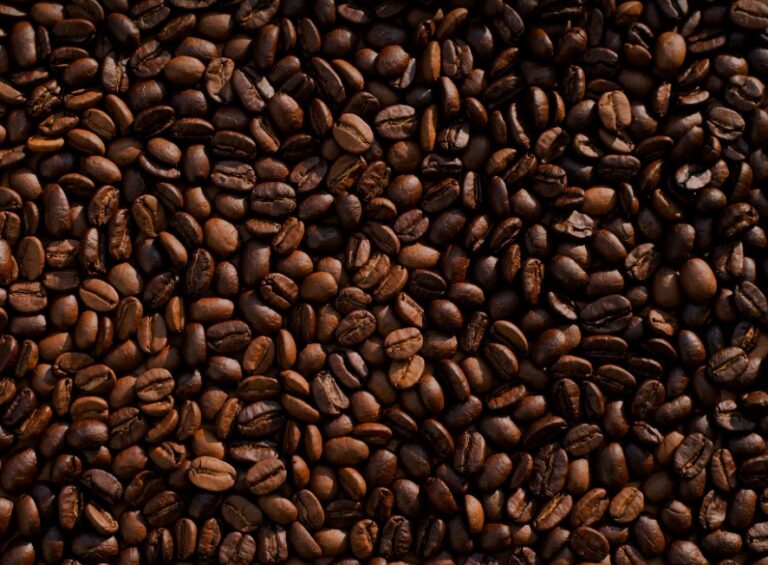Climate change is not just a distant concern; its effects are unfolding before our eyes, impacting even our favorite foods. Across the globe, extreme weather events like droughts, wildfires, and floods have become more frequent and intense, leaving a trail of destruction in their wake. These changes are not just reshaping our environment but also significantly impacting global agriculture and food supply.
For many of us, the reality of climate change hits home when we visit the supermarket. You might have noticed that some of your favorite foods are becoming more expensive or harder to find. This isn’t a coincidence. The chaotic and extreme weather patterns, a direct consequence of climate change, make it increasingly challenging for farmers to grow certain crops.
Table of Contents
Your favorite foods that could disappear in the future
1. Coffee
For many, a day without coffee is unimaginable. This beloved beverage, however, is facing a grave threat from climate change. Coffee-growing regions, especially in Latin America, are experiencing rising temperatures that are proving catastrophic for coffee farming. This warmth has fueled the spread of a destructive fungus known as roya, or leaf rust, ravaging coffee plants.
The impact extends far beyond our morning routines. In regions like Central America and southern Mexico, where over four million people depend on coffee for their livelihoods, the spread of roya is not just a minor inconvenience—it’s a severe economic crisis. This situation threatens the stability and income of countless families who rely on coffee farming.
Organizations like the Rainforest Alliance are stepping in to combat this crisis. They’re working with farmers to implement natural treatments and climate-smart agriculture techniques. These methods aim to protect coffee crops and the farmers’ incomes. But the problem isn’t confined to Latin America alone. Across Africa, the suitability of regions for coffee cultivation is expected to plummet by 65 to 100 percent as temperatures continue to rise, signaling a potentially devastating future for coffee production globally.
2. Chocolate
While not vital for our health, chocolate is undoubtedly a source of joy for many and is one of the world’s favorite foods. This favorite food, however, is facing significant challenges due to climate change and unsustainable farming practices. These environmental shifts are causing a crisis in cocoa production. Some once fertile areas for cocoa are now completely unsuitable for cultivating this precious crop.
The changes are stark: longer dry seasons, reduced rainfall, and the emergence of new pests and diseases. These factors are diminishing cocoa yields and affecting the quality of the chocolate we love. The impact is felt globally, with significant repercussions in the key cocoa-producing regions of West Africa and Indonesia.
Farmer training programs are being implemented to combat these challenges. These programs focus on climate-smart cocoa farming methods. The aim is to build resilience against the adversities of climate change, such as droughts, floods, rising temperatures, and shifting growing seasons. With these new environmental realities, there is hope to sustain chocolate production and some of our other favorite foods, ensuring it continues to be a source of happiness in our lives.
3. Tea
Tea, the second-most consumed beverage after water, is more than just a drink; it’s a staple in the lives of millions. Its popularity is soaring, fueled by the booming wellness industry and a growing global population. Yet, this favorite food faces a precarious future due to climate change. According to a 2018 FAO’s Intergovernmental Group on Tea report, tea thrives only under specific agro-ecological conditions. Unfortunately, these regions are now facing severe impacts of climate change.
The Rainforest Alliance is actively working with tea farmers worldwide to adapt to these changes and mitigate their effects. In Sri Lanka, for example, they’re introducing methods that protect soil, water, and workers while reducing the need for hazardous pesticides.
These practices increase crop yields and reduce the need to expand into untouched rainforests. This approach is a win-win for tea lovers and the environment, as it helps maintain the rainforests that absorb emissions and combat climate change.
4. Bananas
Bananas are the world’s most popular fruit, and their production is set for a significant change. A report by the FAO predicts a 50% increase in land suitable for banana cultivation by 2070. However, this apparent boon comes with its own set of challenges. While higher temperatures may benefit banana growth, they also exacerbate water scarcity, essential for all crops. Additionally, as temperatures rise, farmers who grow bananas alongside other crops like coffee might abandon both if coffee becomes unprofitable due to climate change.
Moreover, higher temperatures are a breeding ground for pests and diseases like black leaf streaks, which can devastate banana fields. The Rainforest Alliance is working with banana farms to adopt sustainable farming practices to counter these challenges.
5. Avocados
Avocados, those creamy, nutrient-rich fruits, have become a staple in many diets, beloved for their versatility and taste. Whether it’s spread on toast or mixed into guacamole, avocados have secured their place among our favorite foods. However, their future is at risk due to climate change.
The ideal growing conditions for avocados are moderate temperatures, but increasingly, they are subjected to extreme heat and drought, particularly in California, a major producer.
In Mexico, which supplies about 80 percent of the U.S. avocado market, the situation is equally dire. Extreme temperatures affect crop yields, and some farmers, under pressure to meet soaring demand, are resorting to deforestation to expand cropland. This deforestation, in turn, contributes to climate change, creating a damaging cycle.
On a positive note, efforts are being made to mitigate these impacts. For instance, the Rainforest Alliance has certified 900 acres of avocado farms in Jalisco, Mexico. This certification, the first of its kind in the country, aims to minimize environmental impacts and ensure the sustainable production of avocados.












